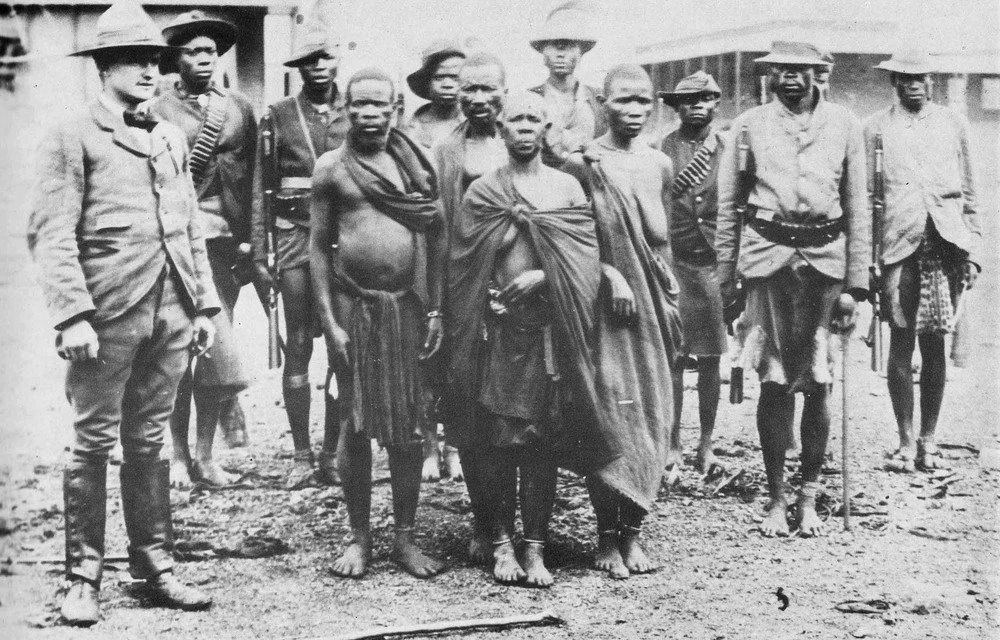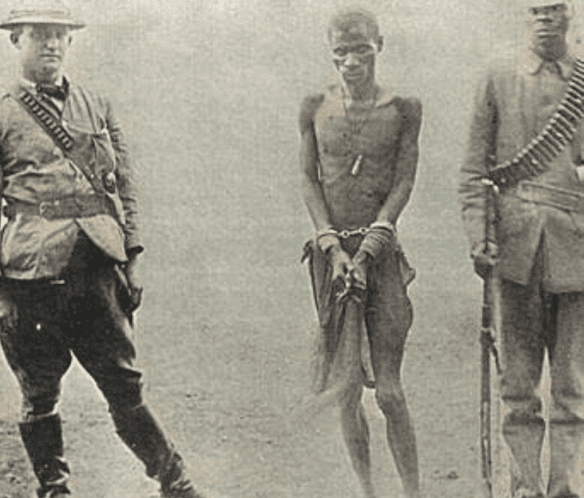How the Shona Resisted Colonial Rule: Heroes of the First Chimurenga
By: Chimdindu Ken-Anaukwu
When the British invaded Zimbabwe in the late 1800s, they expected submission.
But the Shona people had something stronger than weapons: spirit.
They rose against colonial injustice, guided not only by courage but by powerful spiritual leaders who reminded them: “Mapfupa angu achamuka” — My bones shall rise.
That prophecy came from Mbuya Nehanda, the Shona spirit medium who became an eternal symbol of resistance.
This is the story of how the Shona defied oppression and birthed a legacy that still fuels Zimbabwe’s pride today.
The Roots of the First Chimurenga
The word Chimurenga means “revolutionary struggle” in Shona.
The First Chimurenga (1896–1897) was sparked by land seizures, forced labor, and the spiritual desecration brought by colonial rule.
The Shona, alongside the Ndebele, rose up against the British South Africa Company, led not by guns, but by spiritual conviction and unity.
At its heart were two figures whose names still echo through Zimbabwean history.
Mbuya Nehanda: The Woman Who Became a Symbol of Resistance
Mbuya Nehanda Charwe Nyakasikana wasn’t just a person; she was a medium of the Nehanda spirit, one of the revered ancestral spirits of the Shona.
When colonial authorities disrupted the people’s way of life, Mbuya Nehanda called for resistance.
Her leadership was both political and spiritual, reminding her people that freedom was sacred.
Captured and sentenced to death, she told her captors:
“Mapfupa angu achamuka.” — My bones shall rise.
That statement wasn’t just defiance; it was prophecy.
Decades later, her spirit would inspire the Second Chimurenga, which brought Zimbabwe’s independence in 1980.
Sekuru Kaguvi: The Prophet Who United the People
Sekuru Kaguvi (Kagubi Gumboreshumba) was another revered spirit medium.
He worked hand in hand with Mbuya Nehanda, rallying the people to fight against oppression.
He preached unity among clans, declaring that the battle was not only for land but for the soul of the Shona nation.
Together, Nehanda and Kaguvi embodied the sacred balance of male and female energy in Shona cosmology: warriors of spirit and destiny.
Shona Spirituality and Warfare: Fighting with the Seen and the Unseen
For the Shona, war was not just physical; it was spiritual warfare.
Rituals were performed before battles. Warriors sought blessings from the mhondoro (royal ancestral spirits).
Every arrow fired carried faith. Every drumbeat summoned ancestral courage.
To fight the colonizers was to defend hunhu: humanity, dignity, and divine order.
The British Response and the Price of Rebellion
The colonial forces crushed the uprising with brutal efficiency.
Thousands were killed. Mbuya Nehanda and Sekuru Kaguvi were executed in 1898 but not silenced.
Their deaths became seeds of memory. Every generation since has carried their words like sacred fire, a reminder that freedom always comes at a price.
The Legacy of Chimurenga: How Shona Resistance Lives On
The First Chimurenga’s spirit lives in:
Zimbabwe’s national consciousness
Songs, monuments, and storytelling
The enduring pride of being Shona and free
Mbuya Nehanda’s statue now stands tall in Harare, a reminder that her bones truly rose.
Today, her name inspires young Zimbabweans to protect their culture, language, and land.
Learn the Language of the Heroes (Shona Vocabulary Section)
| English | Shona | Pronunciation | Meaning/Context |
|---|---|---|---|
| Freedom | Rusununguko | roo-soo-noon-goo-ko | Liberation or independence |
| Spirit | Mweya | mwe-yah | Refers to the soul or spiritual being |
| Ancestor | Mudzimu | mood-zee-moo | Ancestral spirit |
| War | Hondo | hon-doh | Battle, conflict |
| Unity | Kubatana | koo-bah-tah-nah | Togetherness |
FAQs
Q1: What does “Chimurenga” mean in Shona?
It means “revolutionary struggle” or “uprising.” It represents both spiritual and political fights for freedom.
Q2: Who was Mbuya Nehanda?
A Shona spirit medium and leader who inspired the First Chimurenga. She is considered a national hero in Zimbabwe.
Q3: What role did Sekuru Kaguvi play?
He was a prophet and spirit medium who worked alongside Nehanda, organizing and spiritually guiding the resistance.
Q4: Why was the First Chimurenga significant?
It was the first organized rebellion against British colonial rule in Zimbabwe, symbolizing Shona courage and resistance.
Q5: How does the First Chimurenga influence modern Zimbabwe?
Its legacy shapes national pride, cultural identity, and the celebration of heroes who fought for liberation.
Closing Message
The story of the First Chimurenga is more than history; it’s identity.
The Shona didn’t just fight for land; they fought for their soul, their language, their right to exist.
Every time you say Rusununguko, you echo the voices of Mbuya Nehanda and Sekuru Kaguvi, voices that still whisper through Zimbabwe’s winds today.
Learn their language.
Keep their legacy alive.
🇿🇼✨



